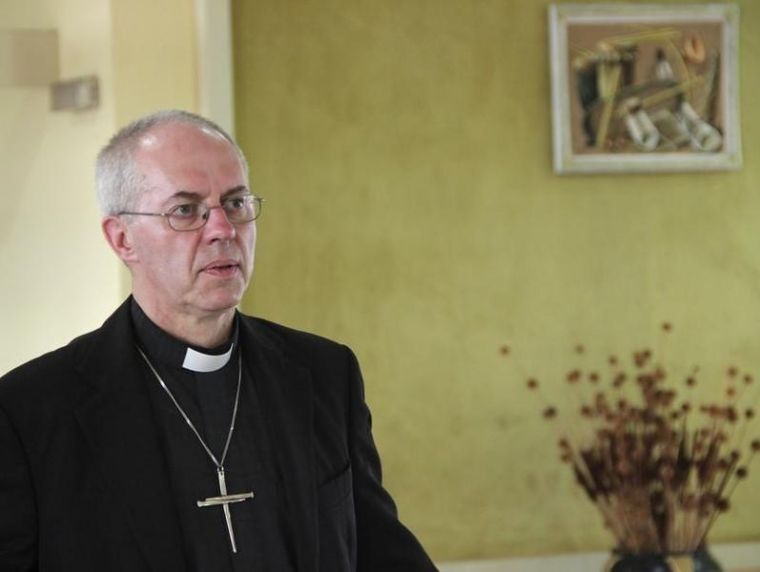Britain's reputation will 'suffer great harm' if international laws are broken over Brexit - Archbishop

The Archbishop of Canterbury has urged the Government to respect international law and work to preserve peace in Northern Ireland.
Archbishop Justin Welby addressed the House of Lords on Monday following a rare intervention in the Financial Times with the Archbishops of York and Armagh, and Primus of the Scottish Episcopal Church in which they together warned that the Internal Market Bill risks setting a "disastrous precedent".
In the Lords on Monday, the Archbishop said the Government needed to be honest in its international dealings around Brexit.
"What we are called to do above all in this country, deeply embedded in our Christian culture and history, is to act justly and honestly," he said.
"We cannot do so if we openly speak of breaking a treaty under international law, reached properly, on which peace in part of the UK relies."
Commenting on the FT piece in his address to peers, Welby denied that it was "misinformed". He said that in making the intervention, the Church leaders had "followed the lead of those who have spent their lives seeking peace in Ireland".
"Peace is surely something of which religious leaders should speak," he said.
"We also listened to the Select Committee on the Constitution, to all five living former Prime Ministers, two former Conservative leaders, and distinguished judges, including former Presidents of the Supreme Court and the former Lord Chief Justice of England and Wales, to name but a few."
He continued: "This country has different characteristics and needs in its regions and nations. They must be reflected in all our relationships if the union is to survive.
"There is no watertight door in relationships between economics and constitutional issues. They overflow from one into the other.
"The timing of anything that the UK Parliament or Government do in Northern Ireland is always especially significant to relationships. It is particularly so at present."
The Archbishop went on to say that although much had been achieved in Northern Ireland since the 1990s, it was "clear" that "the tensions continue".
"Peace and reconciliation need continual reinforcement and continual progress," he said.
"I will therefore be seeking to work with others for amendments which ensure that the process of peace and reconciliation is pursued and that powers exercised under this Bill, when it becomes law, involve consultation amidst the immense complexities of Northern Ireland."
He ended with a warning that the reputation of Britain stands to be affected if the Government breaks international law to achieve Brexit.
"Our reputation as a nation, our profoundly good and powerful influence and example, which I know from experience around the world, will suffer great harm if law-breaking is pursued—greater harm than this Bill seeks to prevent," he said.
"In the Church of England, we are all too clearly aware of the shame that comes with failing morally. Let us not make the same mistake at national level. This House exists to amend and improve legislation, not to derail it, and that must be our urgent aim now."











